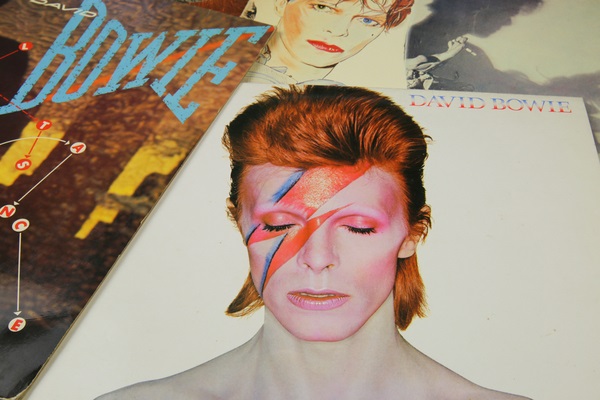In 1972, David Bowie didn’t just release a song. He opened a portal. ‘Starman’ wasn’t simply a single – it was a transmission from the stars, a coded message wrapped in glam, sci-fi mysticism, and razor-sharp pop instincts that sparked an irreversible cultural shift. And when he pointed directly down the lens of that Top of the Pops camera, millions didn’t just see a performer – they saw a saviour.
It wasn’t supposed to happen. RCA weren’t convinced The Rise and Fall of Ziggy Stardust and the Spiders From Mars had a single. Bowie, deep into the recording process, had already included covers like Chuck Berry’s ‘Round and Round’. But under pressure from management and label alike, he returned with ‘Starman’ – a track so potent it immediately ejected that Berry cut from the album, and rewrote history instead.
Bowie penned it alone – no collaborators, no co-writers, just the man himself. While Mick Ronson added lush string arrangements and searing guitar, and the Spiders provided the backbone, ‘Starman’ was Bowie’s vision in full flight. He knew what he was doing. He knew what he was saying. And he knew how to say it. Sonically, it nodded to T. Rex, nodded harder to Motown’s rhythmic punctuation, and even lifted directly from The Wizard of Oz – Bowie himself cheekily reworking the lyric to “There’s a Starman… over the rainbow” during a performance at the Rainbow Theatre, of all places.
The lyrics told of a rock ‘n’ roll prophet – an alien figure transmitting hope through radio waves. It was messianic, theatrical, and deeply subversive. The message? That someone was listening. That salvation was possible. That you weren’t alone.
When Bowie performed ‘Starman’ on Top of the Pops in July 1972, time froze. Hair dyed orange, arm draped around Mick Ronson with casual intimacy, he was androgynous, extraterrestrial, and impossibly magnetic. The UK hadn’t seen anything like it. That brief, televised moment has since been cited by icons from Bono to Boy George as the awakening. For many, it was the first time they’d seen their future. Or felt seen, full stop.
It reached No. 10 in the charts, a feat made more miraculous by the fact that previous masterpieces like ‘Life on Mars?’ hadn’t even charted at all. ‘Starman’ was Bowie’s true breakthrough – not a novelty like ‘Space Oddity’, but the genuine arrival of a cultural force.
Its success altered the fate of Ziggy Stardust, of glam rock, of British pop, and of anyone who saw that broadcast and realised music could mean more.
David Bowie didn’t just give the world a hit song. He gave it a myth. A movement. A message. And like the mysterious Starman of the lyrics, he changed lives not by being present – but by being heard.
